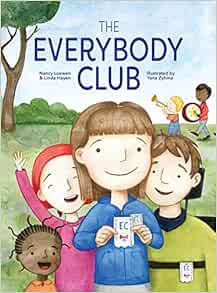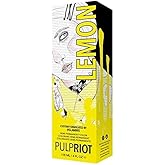In the world of sewing, the choice of needle significantly affects the quality and efficiency of the finished product. With advancements in technology, smartstitch sewing has emerged as a popular method that combines traditional techniques with modern innovations. Among the critical decisions for sewists is the selection between metallic needles and traditional needles. This article explores the differences, advantages, and disadvantages of both types of needles in the context of smartstitch sewing, providing valuable insights for enthusiasts and professionals alike.
Understanding Smartstitch Sewing

Smartstitch sewing refers to a contemporary approach that integrates computer technology with traditional sewing methods. It enables sewists to achieve intricate designs with precision and ease. This innovative method often relies on specialized needles that cater to specific materials and techniques.
The Role of Needles in Smartstitch Sewing
The choice of needle can drastically influence the sewing process. Needles are categorized based on their material, size, and design, and each type serves a distinct purpose:
- Metallic Needles: Typically made from stainless steel, these needles have a fine point and a smooth surface, designed to create clean, precise stitches.
- Traditional Needles: These can be made from various metals, including nickel-plated and chrome-plated options. They vary in design and are generally suitable for a range of fabrics.
Metallic Needles: Pros and Cons

Advantages of Metallic Needles
Metallic needles offer several advantages, particularly in smartstitch applications:
- Durability: Made from high-quality stainless steel, metallic needles resist bending and breaking, making them ideal for heavy-duty use.
- Precision: The fine point of metallic needles allows for accurate stitching, which is crucial for detailed designs in smartstitch sewing.
- Smooth Operation: The polished surface reduces friction, enabling smoother fabric feeding and less thread breakage.
- Versatility: Metallic needles are suitable for various fabrics, including delicate materials like silk and heavier textiles like denim.
Disadvantages of Metallic Needles
Despite their benefits, metallic needles also come with certain drawbacks:
- Cost: Generally, metallic needles are more expensive than traditional needles, which may deter budget-conscious sewists.
- Potential for Damage: The fine point can sometimes snag on certain fabrics, leading to potential damage, especially with knits or stretch materials.
Traditional Needles: Pros and Cons

Advantages of Traditional Needles

Traditional needles also come with their own set of benefits:
- Affordability: Generally, traditional needles are more budget-friendly, making them accessible for all sewists.
- Variety: Available in various sizes and types (e.g., universal, ballpoint, etc.) to cater to different sewing needs.
- Compatibility: Traditional needles work well with a wide range of fabrics and sewing machines.
Disadvantages of Traditional Needles
However, traditional needles can also present some challenges:
- Less Precision: They may not offer the same level of precision as metallic needles, particularly for intricate or detailed projects.
- Durability: Traditional needles can bend or break more easily, particularly under demanding sewing conditions.
Case Studies: Real-World Applications
To better understand the practical implications of using metallic versus traditional needles, let’s examine case studies from both amateur and professional sewists.
Case Study 1: Professional Quilter
A professional quilter, Jane Doe, opted for metallic needles while working on a complex quilt project. She found that:
- The precision of the metallic needles helped her achieve clean lines and intricate designs.
- Despite the higher cost, the durability of the metallic needles meant fewer breakages and less downtime.
Case Study 2: Hobbyist Sewist

On the other hand, a hobbyist, John Smith, primarily used traditional needles for his home projects. He noted that:
- The affordability of traditional needles allowed him to experiment more without the fear of wasting money.
- While he experienced some issues with precision on intricate designs, the variety of needle types available helped him adapt.
Statistics and Trends in Needle Usage

Recent surveys among sewing enthusiasts reveal interesting trends regarding needle preferences:
- Approximately 60% of professional sewists prefer metallic needles for their precision and durability.
- Among hobbyists, about 70% still lean towards traditional needles due to cost-effectiveness and availability.
- Over the past five years, sales of metallic needles have increased by 20%, reflecting a growing appreciation for quality in the sewing community.
Choosing the Right Needle for Your Project
When deciding between metallic and traditional needles for smartstitch sewing, consider the following factors:
- Project Type: For detailed embroidery or quilting, metallic needles may offer better results.
- Fabric Choice: Delicate or stretchy fabrics may benefit from traditional needles with a rounded point.
- Budget: If cost is a significant concern, traditional needles provide a practical solution.
- Sewing Frequency: Regular sewists might invest in metallic needles for their longevity.
The choice between metallic and traditional needles in smartstitch sewing ultimately depends on individual needs, project requirements, and budget considerations. Metallic needles excel in precision and durability, making them suitable for intricate designs, while traditional needles offer versatility and affordability for general sewing tasks. By understanding the strengths and weaknesses of each type, sewists can make informed decisions that enhance their sewing experience and lead to better results. Whether you are a professional quilter or a casual hobbyist, selecting the right needle is crucial to achieving your sewing ambitions.




